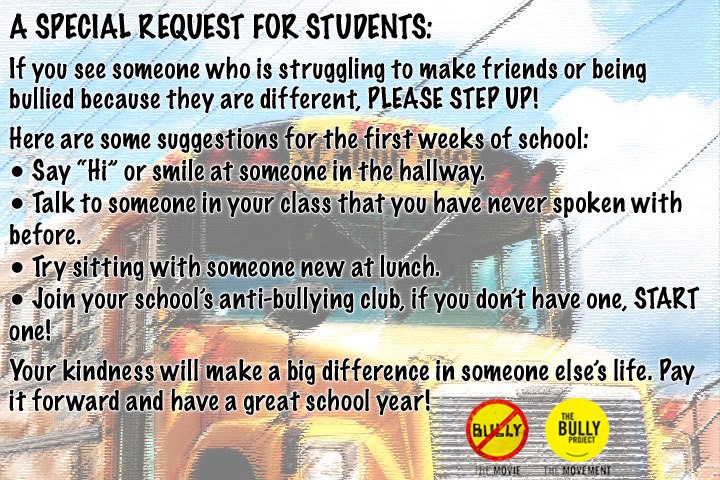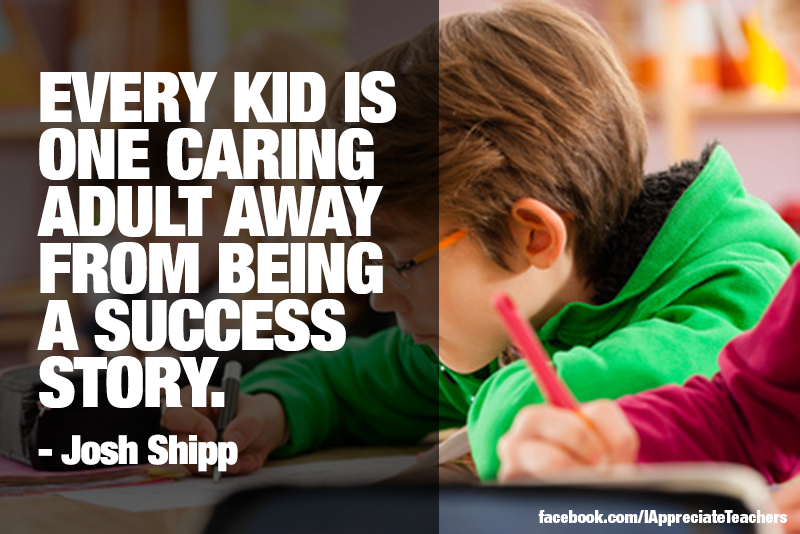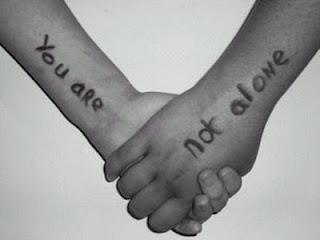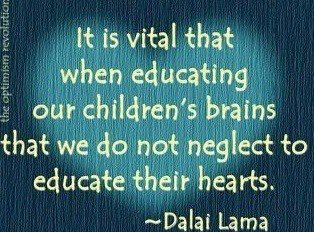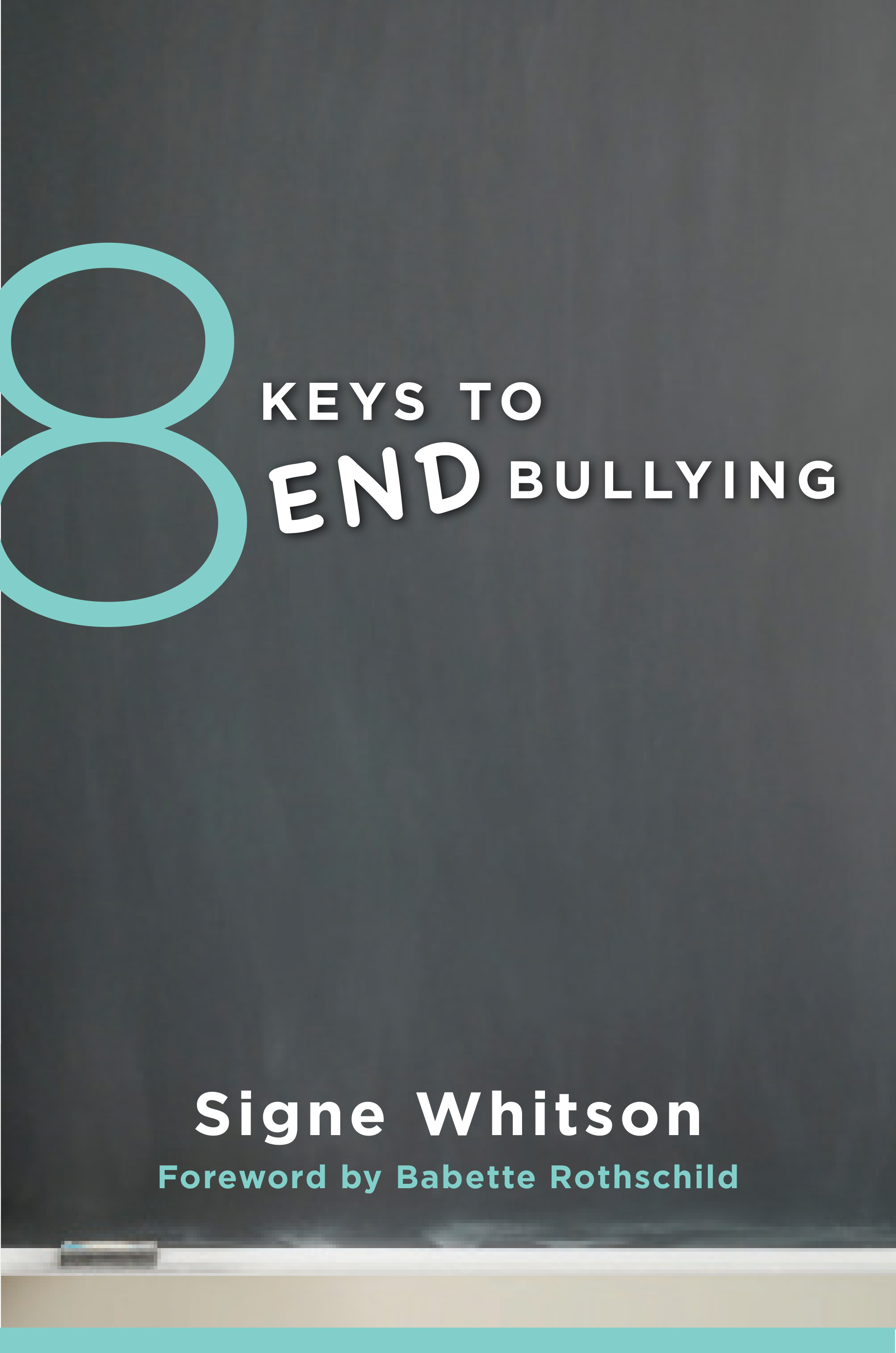Posts tagged bullying
Library Journal Posts Its Review of 8 Keys to End Bullying
0Check out the Library Journal’s review of my newest book, 8 Keys to End Bullying: Strategies for Parents & Schools:
8 Keys to End Bullying will be released at the end of this month. For more information, please click here or find it on amazon.com!
10 Guidelines for Kids on Dealing with Cyberbullying
0In my book, 8 Keys to End Bullying and in my trainings for professionals, parents, and students on strategies for dealing with bullying, I talk about the importance of dealing directly with cyberbullying–rather than throwing our hands up and believing there is nothing we can do about unwanted online aggression. I also talk about how challenging traditional advice is for young people to implement. While it’s easy for an adult to advise, “If he’s posting mean things, just block him,” this advice (albeit good advice) is incomplete in that is doesn’t acknowledge the primacy of social networks in young people’s lives and how difficult an easy thing like blocking can be.
Training sessions are great for talking through these very complex issues. Outside of training, in interactions with kids, I suggest that it is helpful for young people to be equipped with more than just Plan A (e.g. “Blocking”) for dealing with cyberbullying. In fact, young people should be prepared with Plan B, Plan C–and perhaps even Plan D–along with a whole lot of adult support in order to effectively and comfortably manage this issue.
So below, please find 10 Guidelines for Kids on how to deal with cyberbullying, representing various options that can be used simultaneously or one-by-one, on an as-needed basis. I hope you find them helpful!
10 Cyberbullying Guidelines for Kids
Please feel free to share this post and these guidelines with friends and colleagues who may find them useful in their work or personal interactions with kids. More information and suggested strategies for dealing directly with cyberbullying are available in the 8 Keys to End Bullying book or via my training workshops for professionals, parents, and and kids.
Ending Bullying Begins with Building School Culture
0 In my conversations with educators and school administrators about both the struggles and the successes they’ve had with regard to bullying and bullying prevention, one common theme emerges: it’s all about the culture of the classroom.
In my conversations with educators and school administrators about both the struggles and the successes they’ve had with regard to bullying and bullying prevention, one common theme emerges: it’s all about the culture of the classroom.
This article, posted this week in Psychology Today, shares specific and practical strategies teachers use to create classroom cultures in which kindness is valued over coolness and popularity among students is based not on the power to dominate social interactions but rather on a young person’s willingness to reach out to a classmate with compassion.
A True Story of Relational Bullying Among Girls
0Helping Your Tween Stay Strong in the Face of Bullying
0Through the wonders of social media, I have met up with some fascinating people doing great work with kids. Recently, I connected with Heather Thomas at The Helpful Counselor, who was nice enough to share my post about 4 Things Your Tween Needs to Know to Stay Strong in the Face of Bullying. I hate to bounce you from one site to the next, but please check out my post over on her site, then check out all of the other great things she has to offer!
The Long Term Impact of Bullying: What Parents, Teachers, and All Adults Need to Know
0As an author and educator on bullying, I have a keen sense about the urgency of my message but also a healthy awareness that as people sit down to attend one of my trainings, they may begin as “prisoners.” In other words, some boss or supervisor somewhere assigned the person to attend, though what they’d really rather be doing is preparing their classroom, working on lesson plans, collaborating with other teachers, or, well, anything but listening to another talking head droning on and on about an educator’s obligation to stop bullying. Yes, the bullying that was once never talked about has now have become so pervasive (and too often finger-wagging) that us anti-bullying messengers have run the risk of sounding like the teachers in the Charlie Brown cartoons.
My goal is always to turn the prisoners into opportunity-seekers: to help educator’s understand that they are in the rare position to “be that one person” in a child’s life who makes the child feel heard, understood, valued, defended, and strong. Likewise, teachers can reach out to kids who bully, understand the pain behind their aggressive behavior, and teach those students better way to behave, more constructive ways to exert power and control in their lives. As Haim Ginnot once said, teachers really are THE decisive element in the classroom.
This article, featured online in Science Daily, is a great tool for helping teachers, parents, and all adults understand the long term impact of bullying and realize that stopping bullying is not just one more item on the To Do list, but rather a critical opportunity to make all of the difference in a child’s long term well-being:
http://www.sciencedaily.com/releases/2013/08/130819102708.htm
It is the Adult’s Obligation to Remain Connected to Kids, to Help Stop Bullying
0Great article in Education Week about the moral obligation of educators–and all adults–to remain connected with kids and take decisive action to prioritize the dignity and safety of young people.
“…schools have a responsibility not only to help students learn, but also to keep them safe, physically and emotionally, while they are in our care. If we are not addressing the culture of bullying and public shaming, if we are not doing everything we can to teach young people how to treat each other kindly and civilly, if we are ignoring social and emotional crises unfolding before our eyes, we are failing Rehtaeh and thousands like her.”
To read more, please visit: http://www.edweek.org/ew/articles/2013/08/07/37azin.h32.html?tkn=ZMSF27GGZeLPugmJWLy3TPmVIskIUi5%2B7KZS&cmp=ENL-EU-VIEWS1
4 Essential Strategies for Stopping Bullying in Classrooms and Schools
0Classroom teachers have everything to do with stopping bullying. There. I said it. I often hesitate to make this assertion so plainly when speaking to educators, fearing my next move will have to be fending off rotten tomatoes lobbed at my head by teachers who won’t stand for having yet another responsibility heaped onto their already-overflowing plates.
If the spoiled fruit ever were to be thrown my way, I would understand the sentiment, but the fact that they never are is a true testament to the tremendous job that most classroom teachers willingly take on every day of the school year. The teachers who are making a difference in the movement to stop bullying are engaged role models of kindness and expert masters of diplomacy. They are true champions of the underdog and astute shapers of peer culture. They are not afraid to be direct and to confront bullying behavior whenever they see it. These teachers are improving the lives of young people each and every day and demonstrating that time spent on bullying prevention is time saved on conflict, alienation, academic struggles, and victimization. What follows are four strategies for stopping bullying that effective teachers share in common:
Click here to read my article on the HuffingtonPost that explains four strategies effective teachers use to stop bullying in their classrooms and schools:
http://www.huffingtonpost.com/signe-whitson/the-decisive-element-in-t_b_2909367.html
New Book Announcement: 8 Keys to End Bullying
0I’m super-excited to share with you the cover of my new book, due out in the Spring of 2014, via Norton Publishers. The best part (aside from hoping to help lots of teachers, counselors, and kids, of course) is no more waking up at 5am to sneak in some quiet writing hours! Cheers to sleeping in for the rest of the Summer!!

